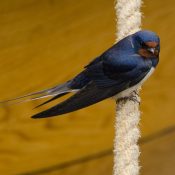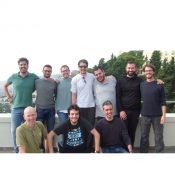Undoubtedly, the Ignatian month has been a precious time for me, to arrive, in silence, to a greater awareness, listening the Word of God and through the personal prayer shared with my companions during the daily mass.
The objective of the exercises is to try to stop and reflect and look at what we really are in sincerity and transparency. In this time of five weeks we live like in a soundproofed room where, having closed the door and eliminated the external noises, the only noise that “troubles us” during the day is the voice of God that whispers to our heart leaving him uneasy. Knowing how to listen is part of the path of formation of a Jesuit novice who, in this first stop, experiences a “relational silence” that invites us to listen to God who speaks through His Word.
This silence, silencing the screaming voices of our daily lives, allows the Spirit to “train” our ability to listen to God even in the most imperceptible sounds, to learn to distinguish what resounds within us and to order to live in fullness. During the exercises one learns above all to filter and isolate those voices that through a seemingly satisfying song, but in reality empty, disorient us like the sirens of the Odyssey and try to seduce us in the journey of life.
In this climate of silent prayer we find our most authentic identity and the deepest reasons for following and serving Christ: contemplating the earthly existence of Jesus, helping us to retrace our own history, to reconcile with it and to confirm or make new decisions, learn to discover and live one’s own ever greater desire for God.
Only in this way can the mind and the heart be opened to the mystery of a God who loves us for our limitations and, pulling us out of the labyrinths in which we sometimes get lost, gives us back the freedom and joy that transform our poverty into opportunities of life for us and for those around us.
Therefore, as regards the balance of the balance on what can bear fruit, foreseeing that even in the ordinary of every day, if one learns to rightly administer the gifts of God, it is possible to achieve the extraordinary. In so doing, my love is the courage necessary to abandon the terrain of our securities and to go outside, giving up our egoistic desires, to live fully that love which in the Crucifixion becomes a gift for the other and which calls each one of us a price of his life a gift for others, like a perennial Eucharist, in the environments where we live.
The Ignatian month was therefore a time for fare True experience of God’s love in my life, to let me love Him and to learn to love coming to Him and Pedro Salinas is inscribed in his poetry, all this, for me, is well enclosed in the following verses: “When you have chosen me, | is the love he chose, | I emerged from the great anonymity | of all, of nothingness. || Until then | I had never been higher | than the peaks of the world. || I had never fallen below | of the depths | maximum reported | on the sea charts “.
Marco Maio, first-year novice




Comments